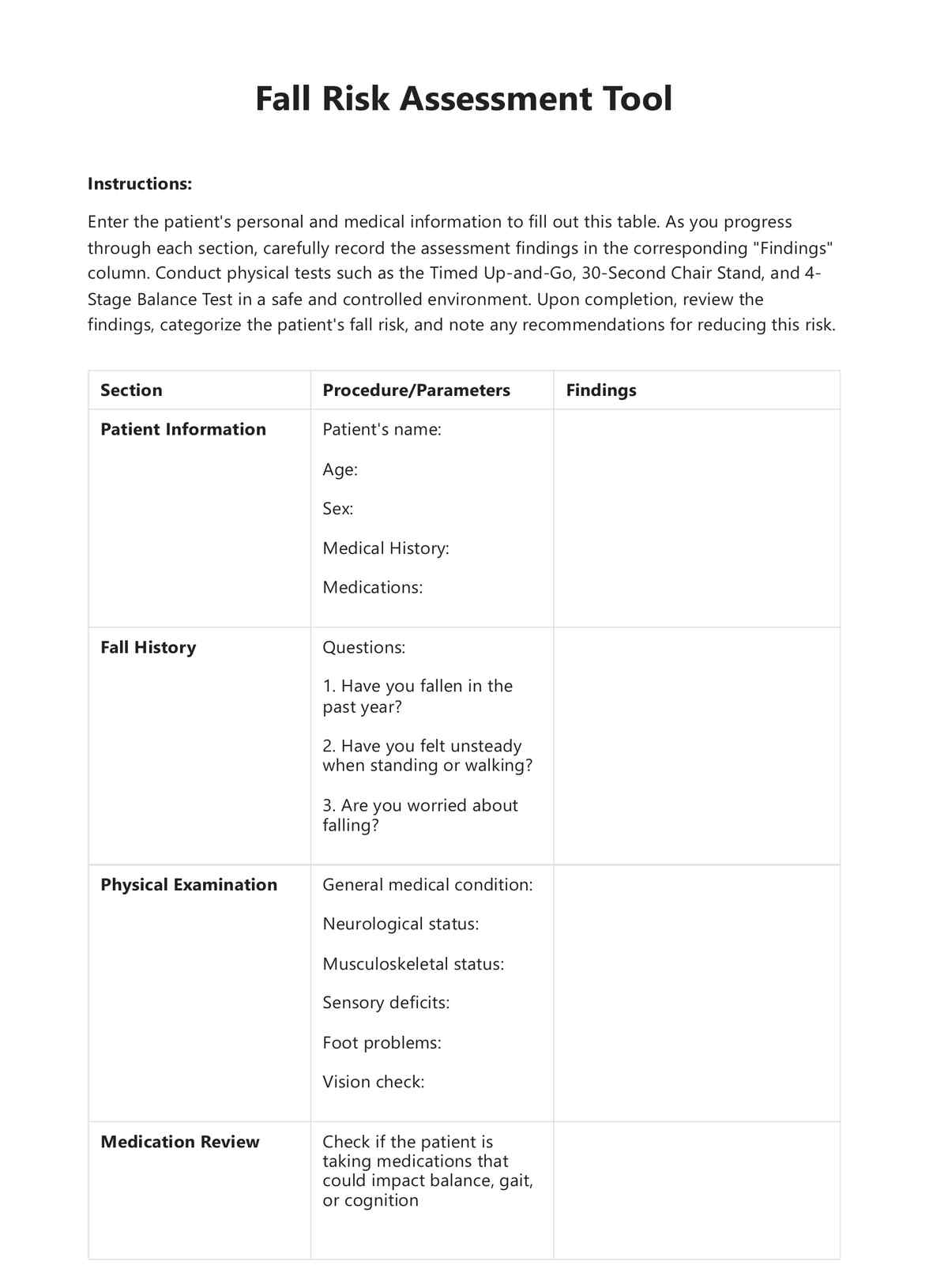Getting My Dementia Fall Risk To Work
Getting My Dementia Fall Risk To Work
Blog Article
The smart Trick of Dementia Fall Risk That Nobody is Discussing
Table of ContentsDementia Fall Risk Things To Know Before You Get This6 Easy Facts About Dementia Fall Risk ShownDementia Fall Risk - QuestionsThe Only Guide to Dementia Fall RiskThe Only Guide for Dementia Fall Risk
The FRAT has three areas: drop danger status, risk variable checklist, and activity strategy. A Loss Danger Condition includes information regarding history of recent drops, medicines, psychological and cognitive status of the person - Dementia Fall Risk.If the person scores on a risk variable, the matching number of factors are counted to the patient's autumn risk rating in package to the far right. If a patient's loss danger rating amounts to five or greater, the person goes to high risk for drops. If the client ratings only 4 points or reduced, they are still at some risk of dropping, and the nurse must use their ideal medical analysis to manage all loss risk variables as part of an all natural treatment plan.
These standard approaches, generally, aid establish a secure environment that reduces unexpected falls and defines core preventative procedures for all patients. Indications are vital for clients at threat for falls. Doctor require to acknowledge who has the problem, for they are accountable for implementing actions to promote individual safety and security and protect against drops.
Not known Incorrect Statements About Dementia Fall Risk
For instance, wristbands must include the patient's last and given name, date of birth, and NHS number in the UK. Details should be printed/written in black versus a white background. Just red color should be made use of to indicate unique individual status. These referrals are constant with current growths in client recognition (Sevdalis et al., 2009).
Things that are too much may need the patient to reach out or ambulate needlessly and can potentially be a danger or add to falls. Aids avoid the person from going out of bed with no support. Registered nurses reply to fallers' phone call lights extra rapidly than they do to lights launched by non-fallers.
Visual disability can substantially cause drops. Hip pads, when put on correctly, might reduce a hip fracture when autumn takes place. Maintaining the beds closer to the floor minimizes the threat of drops and major injury. Putting the cushion on the flooring considerably minimizes loss risk in some health care setups. Reduced beds are made to lessen the distance a client falls after relocating out of bed.
Our Dementia Fall Risk Diaries
Clients that are high and with weak leg muscular tissues that try to sit on the bed from a standing placement are most likely to fall onto the bed because it's too reduced for them to reduce themselves safely. Also, if a high individual attempts to obtain up from a reduced bed without support, the patient is most likely to drop back down onto the bed or miss the bed and drop onto the flooring.
They're developed to advertise timely rescue, not to prevent drops from bed. Audible alarm systems can likewise remind the person not to rise alone. Using alarms can also be an alternative for physical restraints. Apart from bed alarms, raised supervision for risky clients additionally may aid avoid drops.

People with a shuffling stride boost fall chances significantly. To reduce loss risk, footwear ought to be with a little to no heel, slim soles with slip-resistant walk, and sustain the ankles.
The 8-Minute Rule for Dementia Fall Risk
In a research, homes with appropriate illumination report less drops (Ramulu et al., 2021). Improvement in lighting at home might minimize autumn rates in older grownups.

Sitters are reliable for ensuring a protected, protected, and risk-free environment. Nonetheless, research studies demonstrated really low-certainty evidence that sitters minimize fall threat in severe treatment healthcare facilities and only moderate-certainty that choices like video surveillance can decrease caretaker use without raising autumn threat, suggesting that caretakers are not as helpful as originally believed (Greely et al., 2020).
Some Known Questions About Dementia Fall Risk.

Enhanced physical conditioning minimizes the threat for falls and limits injury that is suffered when autumn takes place. Land and water-based workout programs might be in a similar way advantageous on balance and gait and consequently lower the threat for falls. Water exercise may contribute a positive pop over here benefit on balance and gait for ladies 65 years and older.
Chair Increase Workout is a straightforward sit-to-stand exercise that helps strengthen the muscles in the thighs and butts and boosts mobility and self-reliance. The goal is to do Chair Rise exercises without using hands as the client becomes stronger. See resources area for a thorough guideline on just how to execute Chair Surge workout.
Report this page